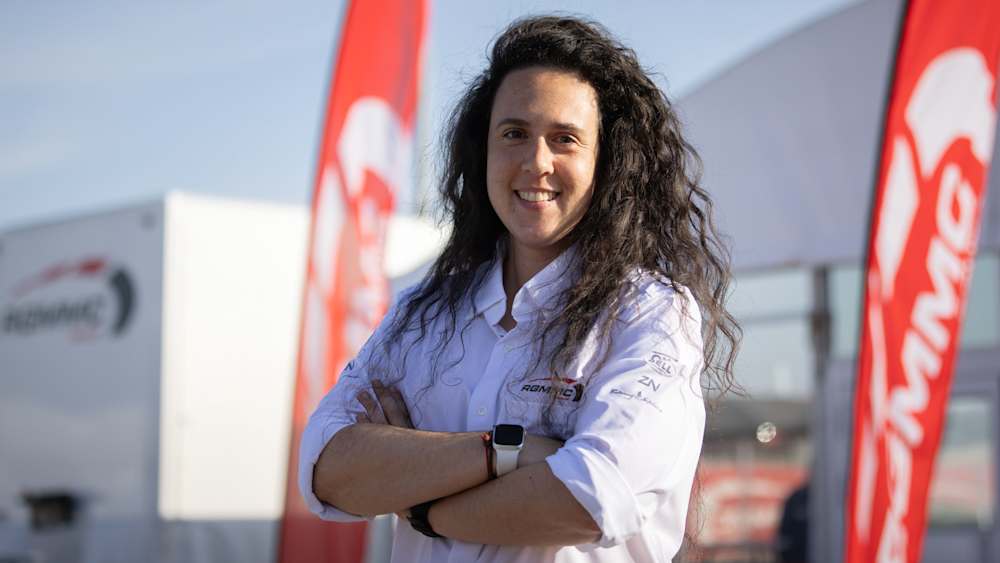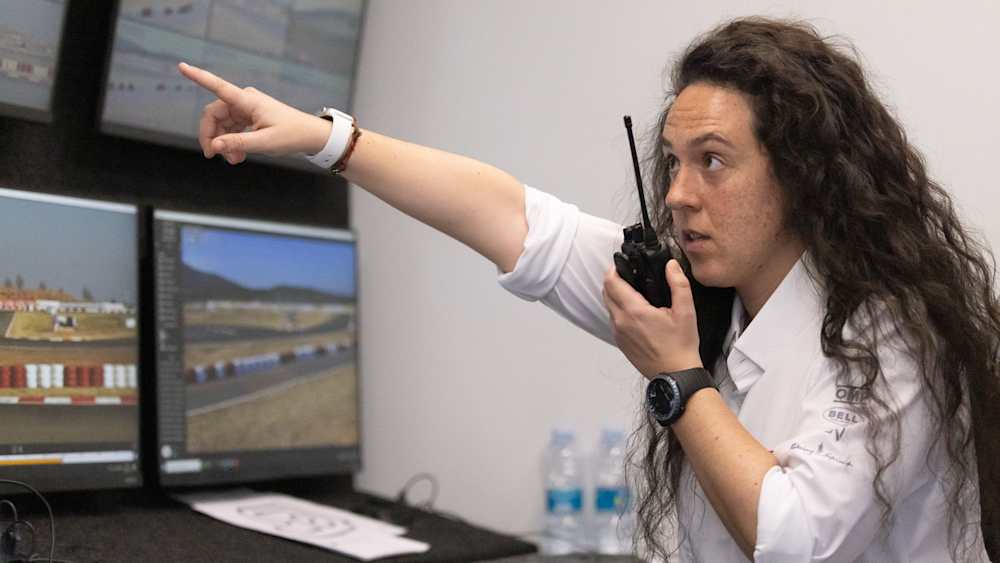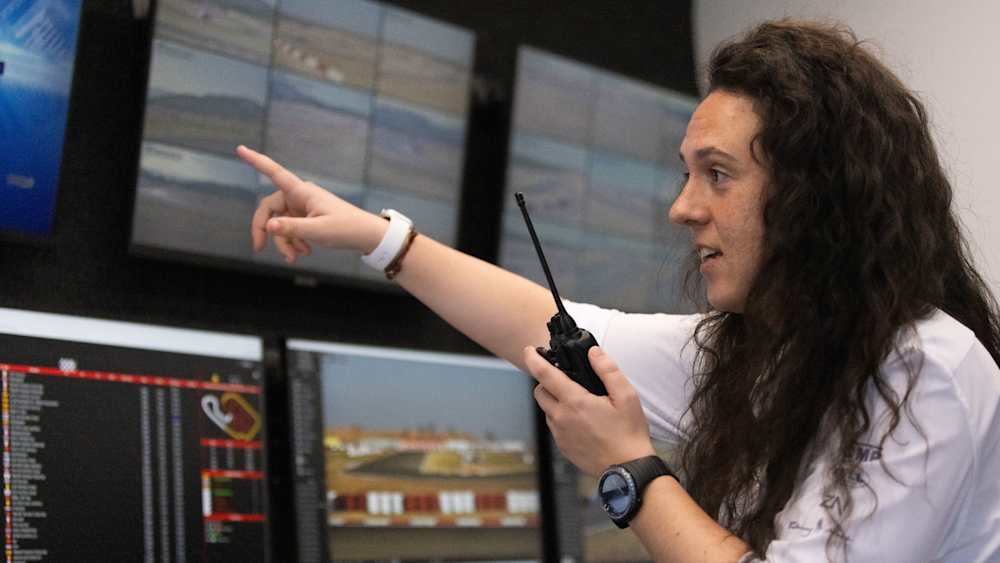Feature
Career Spotlight: Meet Joana Sousa Falcão, RGMMC’s Head of Race Control

From motorsport’s very beginning, women have been intrinsic to bringing the high-octane action to life, using their knowledge and expertise to play pivotal roles both on and off the track.
As part of our new series, we’ll shine a light on some of the women who are making strides in the world of racing and encourage the next generation of young girls to follow in their footsteps.
Exploring the crucial, but often unseen work done behind the scenes in the Race Control Tower, we spoke to Joana Sousa Falcão, RGMMC’s Head of Race Control, to learn more about her responsibilities and the cool, calm, and collected approach needed to make rapid-fire decisions under pressure.
Growing up in Portugal, Falcão had exposure to life trackside from an early age. With her father and uncle involved as national and international stewards respectively, she’d frequently accompany them to race weekends and found her spark for the sport.
Soon, she chose to pursue her own journey, starting out as a flag marshal at a club in Leiria, before becoming secretary to the stewards and later an international steward herself. From there, she joined the group of officials inside Race Control and last year, stepped up to head the team at RGMMC’s karting events, including the IAME Euro Series.
“When I started as a flag marshal Race Control in national events in Portugal didn’t exist,” Falcão explains. “So, it was the flag marshals that had to see the incident and go to talk personally with the stewards. I needed to learn what all the incidents were without Race Control, then analyse it and tell the stewards what happened for them to make a decision.”
Overseeing over 20 karting races a day across any particular round, from the pre-grid all the way to the post-race weight checks, it’s a lengthy and intense process. Reviewing more than 35 cameras at any one time, the need to be eagle-eyed is crucial to spotting any infractions, such as false starts or overtaking under yellow flags.
Whilst the benefits of modern technology have made it easier to deal with the huge flow of information, Falcão is still harnessing the skills she built early in her career and says her ability to quickly assess on-track events remains one of her biggest assets in the role.

“Now it’s much easier to see the video, view it two or three times and go back or forward slowly, frame by frame to zoom in and zoom out,” she said. “In the past, you just had one chance to see it live in real time and that’s it.”
Essential to ensuring fairness across the competitions, Falcão’s role sees her examine contentious actions, using quick thinking to correctly analyse the situation whilst producing the reports the officials need to process a wide scale of information accurately.
To make this possible, she relies on her extensive knowledge of the regulations. Dealing with the non-stop pressure of a race weekend, she says there is little time to think before needing to move on to the next incident, making confidence and trust in her own judgement vital.
READ MORE: Weug wanting to make consistency the hallmark of mounting F1 ACADEMY title challenge
“You need to know the regulations and how they work during a race — what you can do, what you cannot do and what incidents would get a penalty,” explains Falcão. “You need to be sure what things work and you need to pay very close attention to everything. You need to be fast; you need to be confident in your decisions and know what to do as fast as you can.”
She continues: “Just know the regulations. If you know the regulations, you can do more events to prepare for the others. You can watch videos and see situations that happened in the past, but two incidents are never the same. So, if you want to prepare for it, you can ask other people that have seen it what their opinion is or what they’d do in that incident.
“But in the event, you don’t have time to think about it, you just make a decision in 20 seconds or 30 decisions in one minute. Sometimes we have 20 races or more in a day with 36 karts each. You’ll have 20 situations happen during a race and without any gap, you’ll just start over again. We don’t have any time to think about it, you need to be very fast.”

Utilising a hands-on approach, Falcão believes these skills can’t be taught in a classroom and instead come from experience over time, alongside gathering expertise from those around you. For her, remaining level-headed is vital to juggling all the unpredictability that will inevitably come her way.
“It’s not a normal career you’d get from school,” she notes. “You don’t have lessons; you just have to be there. Organisation, to be calm and to control the stressful situations. Just don’t panic, so you need to be calm, focused, concentrate, be organised, and do multiple things at the same time. You need to know how to control the chaos — people asking about 10 different situations at the same and I need to answer it all with the facts and evidence.”
READ MORE: Quick out of the blocks & crucial first steps made: Round 1 in Review
Nevertheless, it’s an effort worthwhile for Falcão. As more and more young women aspire to their own careers in motorsport, she’s proud to help pave the way and show that passion and determination will drive you far.
“In the beginning, sometimes you can feel more nervous or that I need to prove it more,” she says. “But when they see what you actually know, what you’re capable of and you’re doing your job, they treat you exactly the same.
“Nowadays, I see more girls trying to enter into this world in all areas like technical, sporting and driving. I think it’s important to see other women successful in motorsport and see that you can do it to. It makes it easier because you believe that it’s possible and that you can do whatever you want. Do not give up and believe until the end, being a woman is never a disadvantage.”